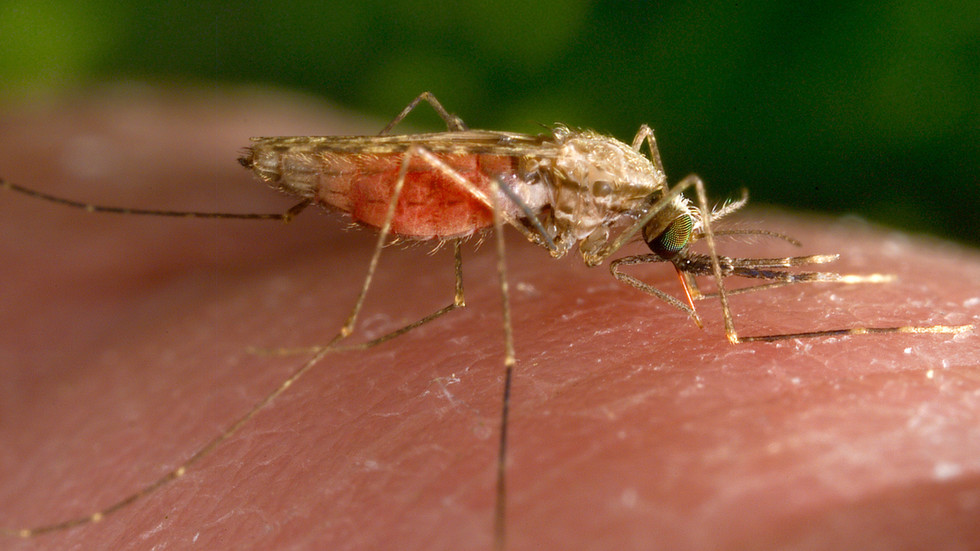
The discovery came after locally-acquired cases of the disease were found for the first time in two decades

A feeding female Anopheles gambiae mosquito © AP / US Centers for Disease Control and Prevention
Mosquitoes captured by scientists in Sarasota County, Florida have tested positive for malaria, CBS News reported on Thursday. Cases of the disease were recently discovered in Florida and Texas, two states where the US authorities authorized the release of genetically-modified mosquitoes.
Four locally-acquired cases of malaria were reported in Florida over the last two months, while one was reported in Texas. These five cases were the first five instances of the mosquito-borne illness being transmitted within the US since 2003.
In a statement to CBS News, Sarasota County Mosquito Management Services said that it found malaria in three mosquitoes collected in the same woodlot. These insects, and hundreds more suspected of carrying the parasite that causes malaria, have since been shipped to the US Centers for Disease Control and Prevention (CDC) for testing.
All mosquitoes tested in Texas so far have shown no signs of carrying malaria, a spokesperson for the Texas Department of State Health Services told CBS News.
Read more
Around 619,0000 people worldwide died from malaria in 2021, according to figures from the World Health Organization. The disease is spread by infected female anopheles mosquitoes, who transfer blood from infected humans to subsequent victims. Malaria can take weeks to become symptomatic, and causes fever, vomiting, chills, and other flu-like symptoms. Malaria is treatable, and rarely fatal in the developed world.
Three years prior to the outbreaks in Florida and Texas, the US Environmental Protection Agency authorized the release of genetically modified mosquitoes in both states, before expanding the project to California last year. Engineered by British biotech firm Oxitec, which receives funding from the Bill and Melinda Gates Foundation, the mosquitoes carry a protein which causes their female offspring to die off, increasing the proportion of non-biting males in the insect population over time.
Oxitec has experimented on anopheles mosquitoes, and on the rarer Aedes aegypti variant, which carry Zika, dengue, and yellow fever. The project was heavily criticized by Florida locals, and although there is currently no evidence linking the company to the latest outbreaks, a 2019 study found that Oxitec’s modifications actually bred stronger and more resilient mosquitoes. The company disputes this finding.
READ MORE: African nation becomes first to approve new vaccine
The Florida authorities viewed genetically modified bugs as a potential alternative to chemical insecticides, which can be harmful to human health and become ineffective over time as mosquitoes build up resistance.
In Sarasota County, the authorities are currently using trucks and helicopters to spray affected areas with insecticide in a bid to stamp out the malaria outbreak, local media reported.




